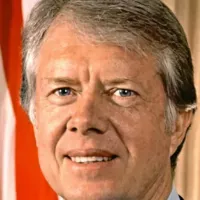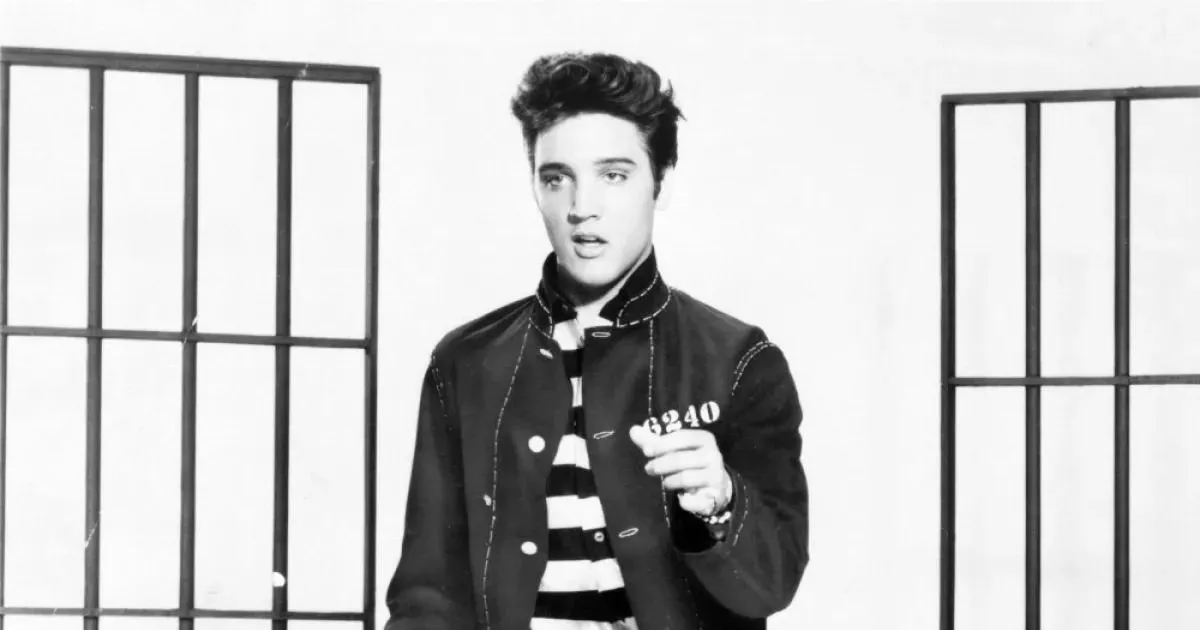Elvis Presley, the "King of Rock and Roll," was a monumental American singer and actor, heavily influencing 20th-century culture. His groundbreaking, sexually charged performances and blending of musical genres, crossing racial boundaries, sparked both controversy and immense popularity. He remains a central figure in the history of rock and roll and American popular culture, known for his distinctive voice, charismatic stage presence, and impact on music, fashion, and entertainment.
January 8, 1935: Elvis Presley's Birth
On January 8, 1935, Elvis Aaron Presley was born in Tupelo, Mississippi. He later became a famous singer and actor, known as the "King of Rock and Roll".
January 8, 1935: Birth of Elvis Presley
On January 8, 1935, Elvis Aaron Presley was born to Gladys Love and Vernon Presley in Tupelo, Mississippi. His twin brother, Jesse Garon, was stillborn. Elvis grew close to his parents and found initial musical inspiration at the Assembly of God church.
1938: Loss of Home
In 1938, Vernon Presley was jailed for eight months after being found guilty of altering a check, leading to the family losing their home. They relied on neighbors and government food assistance for support.
September 1941: Entry into First Grade
In September 1941, Elvis Presley entered the first grade at East Tupelo Consolidated, where his teachers considered him an "average" student. This marked the beginning of his formal education.
October 3, 1945: First Public Performance
On October 3, 1945, at the age of 10, Elvis Presley had his first public performance at the Mississippi–Alabama Fair and Dairy Show, singing "Old Shep". He recalled placing fifth in the singing contest.
1945: Talent Show Performance
In 1945, Elvis Presley sang "Old Shep" at a talent show. He later recorded the song for his second RCA Victor album.
September 1946: Entry into Milam School
In September 1946, Elvis Presley entered Milam School for sixth grade. This marked a new phase in his education.
1946: Arthur Crudup's 'That's All Right'
In 1946, Arthur Crudup originally recorded the song "That's All Right". This song became significant for Elvis Presley when he recorded his version and launched his career.
November 1948: Move to Memphis, Tennessee
In November 1948, the Presley family moved to Memphis, Tennessee. Elvis enrolled at L. C. Humes High School, where he later received a C in music in eighth grade.
1950: Guitar Practice with Lee Denson
In 1950, Elvis Presley began practicing guitar under the tutelage of Lee Denson, a neighbor. They, along with Dorsey and Johnny Burnette and two other boys, formed a loose musical collective.
June 1953: Graduation and Musical Aspirations
By the time he graduated high school in June 1953, Elvis Presley had singled out music as his future. He spent much of his time learning songs, listening to gospel music, and absorbing the sounds of blues and rhythm and blues from local radio stations.
August 1953: First Recording at Memphis Recording Service
In August 1953, Elvis Presley checked into Memphis Recording Service, run by Sam Phillips, to record a two-sided acetate disc. He recorded "My Happiness" and "That's When Your Heartaches Begin".
1953: Original Hit of Hound Dog
In 1953, "Hound Dog", written by Jerry Leiber and Mike Stoller, became a hit for blues singer Big Mama Thornton.
1953: Humes' Annual "Minstrel" Show Performance
In 1953, during his senior year, Elvis Presley competed in Humes' Annual "Minstrel" Show, singing and playing "Till I Waltz Again with You" by Teresa Brewer. The performance significantly improved his reputation.
January 1954: Second Acetate Recording at Sun
In January 1954, Elvis Presley cut a second acetate at Sun, recording "I'll Never Stand in Your Way" and "It Wouldn't Be the Same Without You". Despite these efforts, nothing immediately came of the recordings.
July 17, 1954: First Public Performance
On July 17, 1954, the trio of Elvis Presley, Scotty Moore, and Bill Black played publicly for the first time at the Bon Air club. Later that month, they appeared at the Overton Park Shell, where Elvis pioneered his signature "Rubber legs" dance movement.
November 1954: Performance on Louisiana Hayride
In November 1954, Elvis Presley performed on Louisiana Hayride, a rival to the Grand Ole Opry. His first set was met with a muted reaction, but his second set inspired an enthusiastic response, leading to a year-long engagement on the show.
1954: Beginning of Elvis' Music Career
In 1954, Elvis Presley began his music career at Sun Records with producer Sam Phillips. This collaboration aimed to bring the sound of African-American music to a broader audience. Presley, alongside Scotty Moore and Bill Black, pioneered rockabilly music.
August 1955: Management Contract Renewal and Special Advisor Appointment
In August 1955, Elvis Presley renewed his management contract with Bob Neal while simultaneously appointing Colonel Tom Parker as his special advisor, marking a significant change in his management structure.
1955: Rise to Regional Star Status
By early 1955, Elvis Presley's regular appearances on Louisiana Hayride, constant touring, and well-received record releases had made him a regional star.
1955: D.J. Fontana Joins and RCA Victor Acquires Contract
In 1955, D. J. Fontana joined Elvis Presley's band as the drummer, completing the classic quartet. Also in 1955, RCA Victor acquired Elvis' contract in a deal arranged by Colonel Tom Parker, who became his manager.
January 10, 1956: First RCA Victor Recordings
On January 10, 1956, Elvis Presley made his first recordings for RCA Victor in Nashville, Tennessee, accompanied by his regular band, a pianist, guitarist Chet Atkins, and background singers. This session produced the song "Heartbreak Hotel".
January 1956: Release of "Heartbreak Hotel"
In January 1956, Elvis Presley's first RCA Victor single, "Heartbreak Hotel", was released. The song became a number-one hit in the US, and within a year, RCA Victor sold ten million Presley singles.
September 9, 1956: First Appearance on The Ed Sullivan Show
On September 9, 1956, Elvis Presley made his first appearance on The Ed Sullivan Show, which was seen by approximately 60 million viewers. He performed "Love Me Tender", leading to a million advance orders and solidifying his status as a national celebrity.
November 1956: Film Debut in Love Me Tender
In November 1956, Elvis Presley made his film debut in "Love Me Tender". This marked the beginning of his acting career in addition to his music career.
1956: Presley's Rise to National Attention
In 1956, Elvis Presley's rise to national attention transformed popular music and had a huge effect on popular culture. He was central to defining rock and roll as a musical genre and a touchstone of youth culture and rebellious attitude. Rock and roll's occupation of a central position in mainstream American culture facilitated a new acceptance and appreciation of black culture.
1956: Debut Album Tops British Charts
In 1956, Elvis Presley's self-titled debut album topped the British charts, marking the beginning of his record for the longest span between number-one albums by anyone.
January 6, 1957: Third and Final Ed Sullivan Show Appearance
On January 6, 1957, Elvis Presley made his third and final appearance on The Ed Sullivan Show, where he was shot only down to the waist. He performed "Peace in the Valley", and Sullivan declared him "a real decent, fine boy".
March 19, 1957: Graceland Purchase
On March 19, 1957, Elvis Presley purchased Graceland, an 18-room mansion. Before purchasing Graceland Elvis recorded Loving You
1957: Starring in Jailhouse Rock
In 1957, Elvis Presley starred in the film "Jailhouse Rock", which became one of his most famous movies. This further solidified his presence in the film industry.
January 1958: Recording King Creole Soundtrack
In mid-January 1958, Elvis Presley held recording sessions in Hollywood for the King Creole soundtrack. Leiber and Stoller provided three songs, marking the last time they worked closely together with Presley.
March 24, 1958: Drafted into the United States Army
On March 24, 1958, Elvis Presley was drafted into the United States Army at Fort Chaffee in Arkansas, marking a major media event. He expressed his desire to be treated like any other soldier.
1958: Top-40 Hits During Military Service
During Elvis Presley's military service in 1958, he had several top-40 hits, including "Wear My Ring Around Your Neck", the bestselling "Hard Headed Woman", and "One Night". RCA also released the album "Elvis' Golden Records".
1958: Drafted into Military Service
In 1958, Elvis Presley was drafted into military service. This temporarily paused his recording career, and he relaunched it two years later.
June 1, 1959: Promotion to Specialist Fourth Class
On June 1, 1959, Elvis Presley was promoted to specialist fourth class while serving in the U.S. Army in West Germany. During his time in the army, he was introduced to amphetamines, and karate became a lifelong interest.
1959: More Top-40 Hits During Military Service
In 1959, while still in the army, Elvis Presley released the songs "(Now and Then There's) A Fool Such as I" and the number-one "A Big Hunk o' Love", which were successful.
February 11, 1960: Promotion to Sergeant
On February 11, 1960, Elvis Presley was promoted to sergeant. During his military service, Presley was noted for his generosity, donating his Army pay to charity and purchasing items for his fellow soldiers.
March 2, 1960: Return to the U.S.
On March 2, 1960, Elvis Presley returned to the U.S. from his military service in Germany. The train that carried him from New Jersey to Tennessee was mobbed by fans along the way.
1961: Starring in Blue Hawaii
In 1961, Elvis Presley starred in the film "Blue Hawaii", which was one of his most famous and commercially successful movies.
1964: Starring in Viva Las Vegas
In 1964, Elvis Presley starred in the film "Viva Las Vegas". This movie is among his most famous and marked another significant role in his acting career.
1966: Presley Expresses Desire to Change Middle Name Spelling
In 1966, Elvis Presley expressed to his father his desire to use the more traditional biblical rendering, Aaron, for his middle name, "especially on legal documents."
1969: Original Release of Rubberneckin'
In 1969, Elvis Presley originally recorded the song "Rubberneckin'". A remix of this song would become successful decades later.
January 1973: Presley Performs Benefit Concerts and Films Aloha from Hawaii
In January 1973, Elvis Presley performed two benefit concerts for the Kui Lee Cancer Fund in connection with the Aloha from Hawaii television special. The first show was a practice run for the live broadcast. The special was broadcast live via satellite on January 14 to audiences in Japan, South Korea, Thailand, the Philippines, Australia, and New Zealand, and to U.S. servicemen in Southeast Asia. The following night, it was simulcast to twenty-eight European countries, and in April, an extended version aired in the U.S. The accompanying double album went to number one and eventually sold over 5 million copies in the U.S.
October 9, 1973: Presley's Divorce Finalized
On October 9, 1973, Elvis Presley's divorce from Priscilla was finalized. Despite the divorce, they remained close friends. Priscilla noted their continued love and co-parenting style, which helped their daughter Lisa feel stable.
December 1973: Productive Recording Session
In December 1973, Elvis Presley had a productive recording session, producing eighteen songs, enough for almost two albums.
1973: Aloha from Hawaii Concert
In 1973, Elvis Presley gave the first concert by a solo artist to be broadcast around the world, "Aloha from Hawaii". This event marked a significant milestone in his career and in music history.
1974: No Official Studio Recordings and Release of Concert Record
In 1974, Elvis Presley made no official studio recordings. Instead, Parker delivered RCA another concert record, Elvis Recorded Live on Stage in Memphis. This album included a version of "How Great Thou Art" that later won Elvis his third and final Grammy Award.
1974: Intensive Touring Schedule Despite Health Decline
In 1974, despite failing health, Elvis Presley undertook another intensive touring schedule. This occurred after a year in which he staged more live shows than ever before (168 concerts in 1973).
March 1975: Return to Recording Studio
In March 1975, Elvis Presley returned to the recording studio.
July 13, 1976: Bodyguards Fired by Vernon Presley
On July 13, 1976, Vernon Presley, Elvis's father, fired Elvis's bodyguards Red West, Sonny West, and David Hebler. Vernon cited the need to cut back on expenses. Some suggest Elvis was too cowardly to do it himself, while others claim it was due to the bodyguards' rough treatment of fans or their outspokenness about Presley's drug dependency.
November 1976: Begins Dating Ginger Alden
In November 1976, after his relationship with Linda Thompson ended, Elvis Presley began dating Ginger Alden.
1976: Recording Sessions at Graceland
In 1976, RCA sent a mobile recording unit to Graceland, making possible two full-scale recording sessions, though the recording process had become a struggle for Elvis Presley.
June 6, 1977: Release of "Way Down"
On June 6, 1977, "Way Down", Elvis Presley's last single issued during his lifetime, was released.
June 26, 1977: Final Concert in Indianapolis
On June 26, 1977, Elvis Presley held his final concert in Indianapolis at Market Square Arena.
August 8, 1977: Last Public Appearance at Libertyland
During the early morning hours of August 8, 1977, Elvis Presley made his last public appearance when he rented the entire Libertyland amusement park in Memphis for himself and about ten others.
August 1977: Death at Graceland
In August 1977, Elvis Presley died at his Graceland estate at the age of 42. His death was attributed to years of substance abuse and unhealthy eating, which severely compromised his health.
August 16, 1977: Elvis Presley's Death
On August 16, 1977, Elvis Presley passed away. He left behind a lasting legacy as a cultural icon of the 20th century.
1977: Posthumous Singles Released
Between 1977 and 1981, six of Elvis Presley's posthumously released singles were top-ten country hits.
1977: Decline and Final Performances
By early 1977, Elvis Presley's health had severely declined. Overweight and impaired by drug use, he struggled through his performances, often forgetting lyrics and barely able to complete the shows. Many performances were described as sad and difficult to watch. In March, he had to cancel and reschedule four shows due to his inability to get out of bed.
1977: President Carter Remarks on Presley's Legacy
In 1977, President Jimmy Carter remarked on Elvis Presley's legacy, noting that his music and personality, fusing white country and black rhythm and blues styles, permanently changed American popular culture. Presley also heralded the expanded reach of celebrity in the era of mass communication.
1977: Over-prescription Allegations Against Physician
In the first eight months of 1977, Elvis Presley's main physician, George C. Nichopoulos, prescribed over 10,000 doses of sedatives, amphetamines, and narcotics in Elvis' name.
1979: Forensic Pathologist Concludes Accidental Death
In 1979, forensic pathologist Cyril Wecht reviewed the autopsy reports and concluded that a combination of depressants had resulted in Elvis Presley's accidental death.
1981: Posthumous Singles Released
Between 1977 and 1981, six of Elvis Presley's posthumously released singles were top-ten country hits.
1981: Physician Exonerated of Criminal Liability
In 1981, a trial of Elvis Presley's physician, George C. Nichopoulos, exonerated him of criminal liability, though he had prescribed over 10,000 doses of sedatives, amphetamines, and narcotics in Elvis' name in the first eight months of 1977. His license was later revoked in the 1990s.
1984: W. C. Handy Award and Golden Hat Award
In 1984, Elvis Presley received the W. C. Handy Award from the Blues Foundation and the Academy of Country Music's first Golden Hat Award.
1986: Induction into Rock and Roll Hall of Fame
In 1986, Elvis Presley was inducted into the Rock and Roll Hall of Fame.
1987: American Music Awards' Award of Merit
In 1987, Elvis Presley received the American Music Awards' Award of Merit.
1994: Presley Autopsy Report Reopened
In 1994, the Elvis Presley autopsy report was reopened. Joseph Davis, after reviewing the data, declared that there was no support for a death from drugs and pointed to a sudden, violent heart attack.
1998: Induction into Country Music Hall of Fame
In 1998, Elvis Presley was inducted into the Country Music Hall of Fame.
2001: Induction into Gospel Music Hall of Fame
In 2001, Elvis Presley was inducted into the Gospel Music Hall of Fame.
2002: Remix of "A Little Less Conversation" Success
In 2002, a Junkie XL remix of Elvis Presley's "A Little Less Conversation" (credited as "Elvis Vs JXL") was used in a Nike advertising campaign during the FIFA World Cup. It topped charts in over twenty countries and was included in a compilation, ELV1S, which was also an international success, returning Presley to the top of the Billboard chart.
2003: Remix of "Rubberneckin'" Tops U.S. Sales Chart
In 2003, a remix of "Rubberneckin'", originally recorded in 1969 by Elvis Presley, topped the U.S. sales chart.
2005: Reissued Singles Top UK Charts
In 2005, three reissued Elvis Presley singles, "Jailhouse Rock", "One Night"/"I Got Stung", and "It's Now or Never", went to number one in the UK. This was part of a campaign to re-release all eighteen of Presley's previous chart-topping UK singles.
2006: Graceland Declared a National Historic Landmark
In 2006, Graceland was declared a National Historic Landmark.
2007: Induction into Rockabilly Hall of Fame
In 2007, Elvis Presley was inducted into the Rockabilly Hall of Fame.
2012: Induction into Memphis Music Hall of Fame
In 2012, Elvis Presley was inducted into the Memphis Music Hall of Fame.
2012: Spider Named in Honor of Presley
In 2012, the spider species Paradonea presleyi was named in Elvis Presley's honor.
2015: If I Can Dream Album Reached Number One in the UK
In 2015, the album "If I Can Dream", setting Presley's vocals against music by the Royal Philharmonic Orchestra, reached number one in the UK, adding to his record for number-one UK albums by a solo artist.
2016: The Wonder of You Album Reached Number One in the UK
In 2016, the album "The Wonder of You", setting Presley's vocals against music by the Royal Philharmonic Orchestra, reached number one in the UK, contributing to his record for number-one UK albums by a solo artist.
2018: Posthumous Award of the Presidential Medal of Freedom
In 2018, Elvis Presley was posthumously awarded the Presidential Medal of Freedom. This award recognizes his significant contributions to music and American culture.
2018: President Trump Awards Presley the Presidential Medal of Freedom
In 2018, President Donald Trump posthumously awarded Elvis Presley the Presidential Medal of Freedom.
2023: RIAA Credits Presley with 146.5 Million Certified Album Sales
As of 2023, the Recording Industry Association of America (RIAA) credits Elvis Presley with 146.5 million certified album sales in the US, ranking him third all-time behind the Beatles and Garth Brooks. He also holds records for most gold albums (101) and most platinum albums (57).
Mentioned in this timeline

The White House located at Pennsylvania Avenue NW in Washington...
California is a U S state on the Pacific Coast...

Lisa Marie Presley - was an American singer-songwriter and the...
New Zealand is an island country in the southwestern Pacific...

Priscilla Presley is an American actress and businesswoman best known...

Jimmy Carter the th U S President - was a...
Trending
57 minutes ago AC Milan Prepares to Face Cremonese: Team News and Match Preview
57 minutes ago NYT Strands Hints and Answers: Guide to Solving the Daily Word Puzzle

2 hours ago Uchijima and Kalinina to meet for the Antalya 2026 Megasaray Hotels Open title.
2 hours ago Southern Lottery Results for March 1st: Searching for the Winning Series
2 hours ago Cyprus Airports Cancel Flights Amid Rising Tensions Between US, Israel, and Iran.

3 hours ago Kansas City Man Steals Greyhound Bus, Leading Police on I-29 Chase
Popular

Jesse Jackson is an American civil rights activist politician and...

XXXTentacion born Jahseh Dwayne Ricardo Onfroy was a controversial yet...

Hillary Diane Rodham Clinton is a prominent American politician lawyer...

Kashyap Pramod Patel is an American lawyer who became the...

Michael Joseph Jackson the King of Pop was a highly...

Barack Obama the th U S President - was the...
